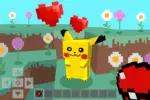Facebook is known for its political discourse, relationship updates and pictures of people’s pets and babies. Twitter is known for the brief, often commonplace declarations and statements that its users are constantly “tweeting.” When it comes to weird memes, superheroes, demon hunters, social justice and heated discussions about the true meaning of Arthur Conan Doyle’s “Sherlock Holmes” stories, however, Tumblr is the place to go.
Tumblr was founded in 2007 by David Karp and consists of millions of users all following, posting and managing blogs together. Like Facebook, Tumblr allows its users to post all kinds of multimedia, from gifs and still images to videos, audio clips and links to outside sources. Unlike Facebook, which is primarily used by adults, Tumblr’s demographic—especially the part that engages in fandom culture—tend to be on the younger side.
I joined Tumblr back in 2012, when I was fifteen and looking for friends online. I was initially pulled into the world of internet fandom when I started watching CW’s “Supernatural,” a TV show about two demon-hunting brothers looking for their missing father. “Supernatural” has one of the largest and most devoted fanbases on Tumblr; as of 2017, the show has been kept alive for an incredible twelve seasons (and there’s a thirteenth in the works) by the overwhelming support of its fans.
When I first discovered Tumblr, I was shocked and delighted to find that so many people shared my obsession with “Supernatural.” I started a blog and began posting about the show, making observations, writing episode predictions and drawing fanart of the characters and settings. Over the years, my interests have shifted, but my love for Tumblr and the friends that I made through the site have stayed.
As anyone who has spent time on the “fandom side” of Tumblr will tell you, it has its issues. But because of the mostly positive experiences I’ve had running a blog on the site, I decided to make a list of the top five reasons to get into fandom culture, Tumblr style.
1. You’ll make new friends and social connections.
During the five years that I’ve been on Tumblr, I’ve met and connected with tons of amazing people hailing from a broad range of different fandoms. Some of the people I’ve met on the site are now my best friends, even though they live hundreds or thousands of miles away. Texting, video conferences, packages and letters keep my relationships with these people strong outside of our Tumblr interactions.
While we started out bonding over one common interest (usually a shared favorite character, character relationship or belief in a certain fan theory), over time my Tumblr friends and I have formed deeper, more personal connections. In fact, my best friend originally messaged me because we are both huge fans of “Star Trek.” Since we first met, we’ve realized that we share many other interests, such as art, cosplay, social rights activism and a deep love of both dogs and cats.
However, there are also many negative and angry people on Tumblr who like to strike out at anyone they disagree with for any number of trivial reasons. Because there is an “anonymous mode” for sending messages to users on the site, bitter bullies and internet trolls often attempt to demean, rile up or otherwise hurt bloggers by sending anonymous hate mail. Despite the occasional negative message, though, I’ve managed to steer clear of most of this drama by turning off anonymous messages and/or blocking people who are unnecessarily mean or problematic.
2. You’ll learn to critique and analyze media.
The fandom that taught me the most about critiquing and analyzing literature and film media was the “Sherlock” fandom. Because the titular character, Sherlock Holmes, is defined by his incredible ability to deduce larger facts about the world around him by noticing and connecting smaller details, the show’s fans tend to be the same way when watching the show. For the “Sherlock” fandom, there is no such thing as overanalyzing. Every tiny detail could be a clue, foreshadowing or a meaningful symbol hinting at something deeper in the plot or a character’s story arc. My obsession with decoding “Sherlock” directly led to my incredible enjoyment of (and perfect grades in) English 202 last year.
What I’m trying to say is, anyone can watch a TV show and enjoy it, but if you want to interact with a piece of media on an all new level, Tumblr is the place to go. If you’re looking for a fun way to practice the skills you’ll need to ace your literature and English classes, you could do worse than picking apart and analyzing the hell out of your favorite TV shows with a bunch of brilliant, nerdy people online.
3. You’ll learn about awesome new books, shows and films.
Tumblr always helps me find something to fill the void that every show or book leaves behind. It pretty much serves as my personally tuned “suggested for you based on your interests” bar on Netflix. When you follow a blog on Tumblr, the website suggests other blogs that are similar. That can be useful for finding shows like the one you just finished, but there’s an even better resource available.
I’m talking about other fans. If you’ve finished a great show and are looking for something similar—or maybe not similar, but something that people who enjoyed the first show will also enjoy—it’s a great bet to look on the blogs of people who are into the same things you are. Most people aren’t just in one fandom, meaning they post about more than one show, film or book at a time. So, look through the blogs you follow and see if anyone is posting about a great new show or the latest sensational novel. You might just find a new obsession!
4. You’ll get the chance to explore your creative side and learn new skills.
Apart from helping me connect with like-minded people, the greatest thing that fandom culture on Tumblr has done for me is encourage me to be more creative. Although there are always nasty people on the internet looking for people to lash out at, most people in the fandoms I’ve been in are kind, polite and endlessly grateful for all contributions to fandom culture. Fanart, fanfiction, fan-made videos, gifs and edits are praised, admired and encouraged as works of love and passion within the majority of fandom circles.
I have been writing, drawing and creating on Tumblr for five years and have never once sent or received hate. People have left incredibly kind comments and notes on my fandom art and writing, encouraging me to keep creating and chasing my love of fiction and the fantastic. It’s partially because of the safe, socially creative environment that Tumblr has provided me with that I feel comfortable creating and sharing my writing with a broader and less anonymous audience.
5. You can discuss important social and political issues in the context of fiction.
In today’s anxious and politically tumultuous world, it can be very difficult to talk about delicate social issues such as racism, sexism, religion, abuse or mental illness. Although discussions of these issues are often encouraged in high school and college settings, many people—myself included—don’t feel comfortable having these discussions in such open, public settings, or prefer talking about them in a more hypothetical context.
Before I continue, I’m going to say that Tumblr can be one of the most toxic and, as users of the site itself would say, “problematic” environments when it comes to discussion of social issues. If you talk to the wrong people or say the wrong thing at the wrong time, people with nothing better to do might jump at the chance to call you any number of “-isms,” even if you are new to social activism and have no idea that what you said was offensive.
Overall, though, Tumblr is full of people who truly want to make the world a better place. Not all of them are doing a great job of making the world more peaceful, but the intent for goodness is there. For those people who really do care about human rights, animal rights, environmentalism and social justice, fandom can be a great resource for talking about these issues.
The chance that you’ll offend someone in real life by discussing real-life issues in fictional settings, or involving fictional characters rather than real people, is relatively low. And even if you do, it’s much better to have some stranger on the internet point out that something you’ve said about a fictional character is potentially offensive than to accidentally offend a real person in real life.
Cover photo courtesy of Amsterdam Printing


















[…] come from what users see as the threat implicit in the new Post+ feature. Fandom creators, who make up most of Tumblr’s userbase, are concerned about putting their fanworks behind a paywall. Monetizing copyrighted content can […]
[…] come from what users see as the threat implicit in the new Post+ feature. Fandom creators, who make up most of Tumblr’s userbase, are concerned about putting their fanworks behind a paywall. Monetizing copyrighted content can […]
[…] Tumblr is almost an internet joke When it comes to social media, that’s the endearing way of saying it. It’s nearly impossible for Tumblr to profit from it, as evidenced by its multiple buying and selling in recent years. Tumblr has many characteristics that set it apart from other social media platforms, but two of them are key to understanding Tumblr’s connection to Twitter’s blue checkmark confusion. […]
[…] Tumblr is pretty much the joke of the internet when it comes to social media, and that’s being said affectionately. It is practically impossible to make money on Tumblr, as evidenced by the numerous purchases and sales in recent years. There are many distinctive features that set Tumblr apart from other social media platforms, but two are key to understanding Tumblr’s association with Twitter’s blue tick. […]
[…] Tumblr is almost an internet joke When it comes to social media, that’s the endearing way of saying it. It’s nearly impossible for Tumblr to profit from it, as evidenced by its multiple buying and selling in recent years. Tumblr has many characteristics that set it apart from other social media platforms, but two of them are key to understanding Tumblr’s connection to Twitter’s blue checkmark confusion. […]
With the unblocked version, you can enjoy doodle jump even in places where gaming sites are normally restricted, such as school or work networks. It runs directly in your web browser, so there’s no need to install or download anything. This makes it easy to play during short breaks or downtime without leaving a trace.